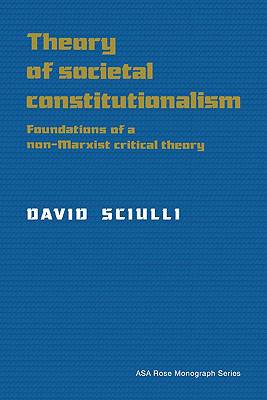
- Afhalen na 1 uur in een winkel met voorraad
- Gratis thuislevering in België vanaf € 30
- Ruim aanbod met 7 miljoen producten
- Afhalen na 1 uur in een winkel met voorraad
- Gratis thuislevering in België vanaf € 30
- Ruim aanbod met 7 miljoen producten
Zoeken
€ 194,95
+ 389 punten
Uitvoering
Omschrijving
The author argues that the existing conceptual frameworks of political and social theory restrict both theorists and empirical researchers to a narrow definition of authoritarianism that focuses on governmental structure and fails to take account of forms of social control exercised outside the governmental sphere. Rather than define authoritarianism primarily by contrast to liberal democracy, Sciulli argues, we need to broaden our conception of authoritarianism to include "social authoritarianism," referring to social control imposed by private organizations and institutions, such as business corporations and professional associations. In this book, Sciulli develops an alternative conceptual framework, which he calls the theory of societal constitutionalism, and he explains how the theory can be used to assess whether social order in a society, whether democratic or authoritarian in political rule, is characterized by some degree of social authoritarianism. The book will be important reading for theorists in sociology, political science and legal studies.
Specificaties
Betrokkenen
- Auteur(s):
- Uitgeverij:
Inhoud
- Aantal bladzijden:
- 380
- Taal:
- Engels
- Reeks:
Eigenschappen
- Productcode (EAN):
- 9780521410403
- Verschijningsdatum:
- 29/11/1991
- Uitvoering:
- Hardcover
- Formaat:
- Genaaid
- Afmetingen:
- 158 mm x 235 mm
- Gewicht:
- 657 g

Alleen bij Standaard Boekhandel
+ 389 punten op je klantenkaart van Standaard Boekhandel
Beoordelingen
We publiceren alleen reviews die voldoen aan de voorwaarden voor reviews. Bekijk onze voorwaarden voor reviews.











